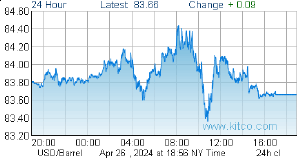9:30 pm Pacific
Why Italy and Iran?
The Wuhan coronavirus death toll in Italy has risen by 793 in the past 24 hours to 4,825, according to the Italian Civil Protection Agency. That’s a 20% jump from Friday and the biggest 1-day spike since the outbreak began. The worst-affected region is Lombardy, where 3,095 people have died from the Wuhan virus.
Italy’s confirmed cases have shot up by 6,557 to 53,587.
Iran, meanwhile, has reported the 3rd highest number of deaths (after Italy and China) with 1,556, though the Iranian figure is believed to be much worse.
Italy and Iran have been the 2 countries outside of China hardest hit by the Wuhan COVID-19 virus.
Why Italy and Iran?

A cleric, right, assists a medic treating a patient infected with the Wuhan coronavirus at a hospital in Qom, about 80 miles (125 kilometers) south of the Iranian capital of Tehran. Nine out of 10 cases of the virus in the Middle East come from the Islamic Republic (Mohammad Ali Marizad/Rasa News Agency via AP)
Helen Raleigh explains at The Federalist:
The reason these 2 countries are suffering the most outside China is largely due to their close ties with Beijing, primarily through the “One Belt And One Road” (OBOR) initiative.
OBOR is Beijing’s foreign policy play disguised as infrastructure investment. Here’s how it works: China and country X agree to do an infrastructure project in country X. Country X has to borrow from a Chinese bank to finance the project. A contract is always awarded to Chinese companies, which then bring supplies and Chinese employees to country X to build the project.
As a result of One Belt And One Road, there are more than 300,000 Chinese living in Italy.
Almost exactly a year ago in March 2019, against warnings from the Trump administration and the EU, Italy became the first and only G-7 country to sign onto OBOR. As part of the deal, Italy opened an array of sectors to Chinese investment, from infrastructure to transportation, including letting Chinese state-owned companies hold stake in 4 major Italian ports.
Lombardy and Tuscany are the 2 regions that saw the most Chinese investment. Nearly a year later, the first Wuhan coronavirus infection case in Italy was reported in the Lombardy region on February 21. Today, Italy is experiencing the worst coronavirus outbreak outside China, and Lombardy is the hardest-hit region in the country.
The Iran case is interesting as well.
2019 was the year Iran officially signed up to OBOR. China sees Iran as a crucial player to this initiative because Iran is not only rich in Oil but also lies in a direct path of an ambitious 2,000-mile railroad China wants to build, which will run from western China through Tehran and Turkey into Europe.
Today, Iranian health officials trace the country’s coronavirus outbreak to Qom, a city of a million people. According to The Wall Street Journal, “China Railway Engineering Corp. is building a $2.7 billion high-speed rail line through Qom. Chinese technicians have been helping to refurbish a nuclear-power plant nearby.”
Iranian medical professionals suspect either Chinese workers in Qom or an Iranian businessman who travelled to China from Qom caused the spread of the coronavirus in Qom. News reports indicate that a number of high Iranian officials have contracted coronavirus, and at least 1 or 2 are believed to have died. Raleigh explains, “Although on Feb. 1 the Iranian government banned its airlines from flying to China, it made an exception for Mahan Air, an unofficial airline for the Islamic Revolutionary Guard Corps.”
The WSJ reported that Mahan Air “had carried out 8 flights between Tehran and China between Feb. 1 and Feb. 9 to transfer Chinese and Iranian passengers to their respective home countries.” This explains why so many high-level Iranian officials are infected by the coronavirus, including First Vice President Eshaq Jahangiri and more than 20 lawmakers.
Relying on China for economic development was never a good idea, but it turned out to be more dangerous than we knew.
 BullMarketRun.ca
BullMarketRun.ca








CPP always has an agenda and usually nefarious. I’m not surprised the EU and USA rightly advised Italy NOT to embrace the OBOR – and to have all that CPP Marxist money and influence? Getting CoronaVirus is just the start.
Comment by MB — March 22, 2020 @ 5:06 am
One of the Big Picture long-term effects of the Wuhan virus will be a major change in the U.S. relationship with China (it’s happening already).
China’s Communist Party a) Initially covered up the outbreak in Wuhan, arresting whistleblowers; b) Lied to the world about the number of cases in Wuhan after reports confirmed there was an outbreak there; c) Denied access to American medical experts to learn about what was going on; d) Still isn’t sharing all the data sets with respect to the virus; e) Threatened countries early on (including Canada, gutless Trudeau caved) with retaliation if they brought forth travel restrictions; f) Is currently carrying out a propaganda war blaming the U.S. Army for the origins of the virus; g) In general, the CCP has weaponized the Wuhan virus in an economic war against the United States and the West. China is using this virus and its impact to ramp up its strategy to broaden its global influence, weaken America and grab control over as much as it can in terms of valuable resources (at sharply discounted prices) from metals to Oil.
If China had handled this situation differently in December and January, this would not be a global pandemic as a recent study concluded. China’s relationship with the World Health Organization also raises serious concerns, not to mention of course their ties with North Korea, Iran and Russia.
It is absolutely urgent that the U.S.
takes immediate steps to end its dependence on China for pharmaceutical and other key products.
Comment by Jon - BMR — March 22, 2020 @ 6:09 am